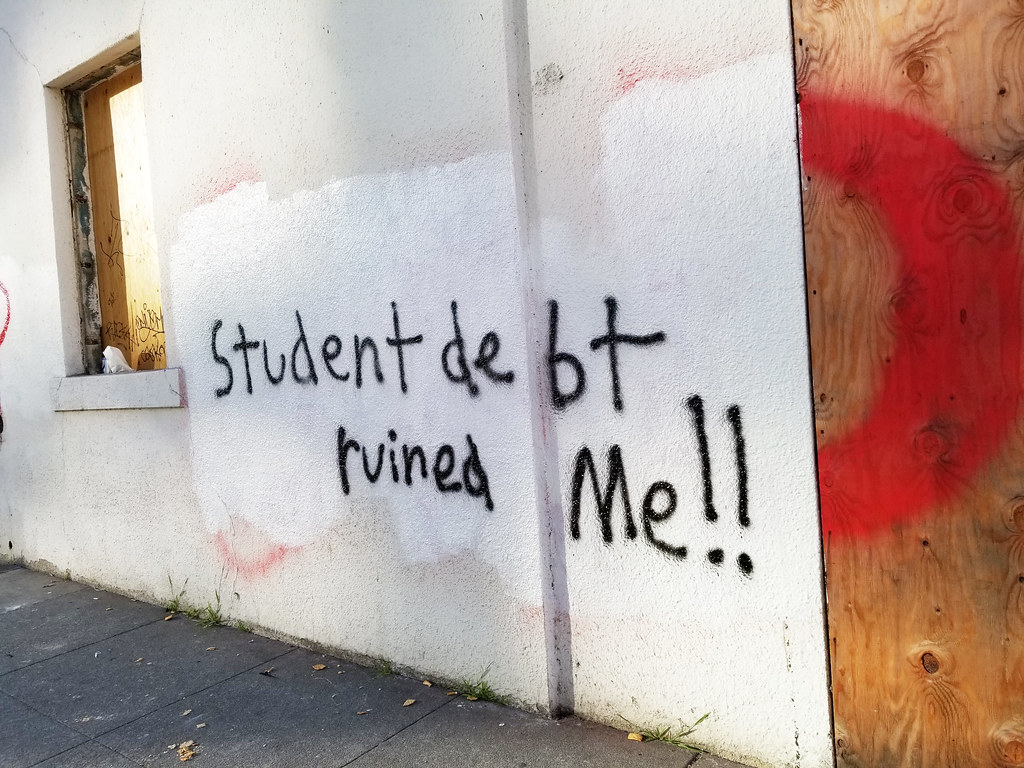One night, as I was scrolling through a university website, looking through postgraduate courses. My attention was immediately caught by the ‘tuition fee’ section. In fact, it stopped me in my tracks completely and instead got me thinking… Do I really want to get myself into more debt to continue my education? Should I just get a job? And ultimately, why aren’t universities free?
But first, we have to consider why we pay for university. According to Barr, N. (2003), higher education should be funded because it “helps the society.” The fees allow universities to build better facilities for students and staff. More funds also mean that they can offer generous salaries to attract a higher caliber of lecturers. Moreover, universities could use this money for research to help the country to develop.
Sure, they are all valid points, however there are also intelligent and hardworking students who are poor. Thus, having difficulty supporting their families. This leads us to our question: if they struggle to help pay household bills, how can they pay university fees? …delayed debt of course!
Working for an education
Yes, they can apply for part-time jobs, however, this can result in students facing other issues such as induced stress and a distraction from their studies. Besides, others query if students should be in a position whereby they have to take part-time jobs when ultimately, they are studying to become doctors, teachers, or scientists? The flip-side of that argument is that part-time jobs are beneficial as it provides not only real-life experience, but financial independence. Which if not used for fees, could be used for travel or to support their families.
Furthermore, the government also ensures that they don’t need part-time jobs because student loans can help them as it covers all tuition fees, accommodation, and other living costs. But as stated by Pettinger, T. (2007), student loans can be a disincentive particularly to students who come from a lower socioeconomic background. It is likely that those from a low income background are deterred from applying to universities due to the fear of debt. Thereby limiting opportunities for younger generations to break the cycle.
Though by 2015, there was a rise in numbers of students attending universities, including those from poorer backgrounds, however, Pettinger counter-argues that there are some students that couldn’t find or secure good jobs after graduation. Leading to difficulties in repaying their loans. Some students were even taking lower paid jobs after graduation intentionally to avoid the threshold of repayments.
 "Student debt ruined me!" by quinn.anya is licensed with CC BY-SA 2.0. To view a copy of this license, visit https://creativecommons.org/licenses/by-sa/2.0/
"Student debt ruined me!" by quinn.anya is licensed with CC BY-SA 2.0. To view a copy of this license, visit https://creativecommons.org/licenses/by-sa/2.0/
Covid’s International Impact
When the world plunged into a spiral of dismay due to Covid-19. Students, in particularly international students were highly impacted by the effects of the pandemic. According to Bulman, M. (2020), international students had to choose between eating meals and paying their tuition fees. A lot of international students, like many others, were dismissed from part-time jobs. However, they were at a greater disadvantage as majority of them hold student visas and those visas are tied to their universities. So, if they couldn’t pay the international student fee upfront or if they missed an agreed installment; not only will they be withdrawn from their courses, but it would also put them in a ‘precarious immigration situation.’ This of course would not have been the case if tuition fees were abolished.
Shouldn’t Knowledge be priceless?
In conclusion, there are positives and negatives for students paying tuition fees. If universities were to be free, it would reduce the amount of student debt, everyone would have an equal chance and theoretically a higher educated population would be advantageous to society. However the drawbacks of this is that there would be financial irresponsibility because when students carry debt, they can learn financial responsibility. Free universities could also devalue the worth of a degree, some students may not take it seriously and attend, well… just because. Lastly, it’s likely that there would be overcrowding and understaffing perhaps lowering the standard of graduates.
Even so, I strongly believe that with all things considered university should be free. If not free then at the very least the fees should be reduced. Even if that’s by way of subsidiaries such as bursary’s, grants and scholarships. After all the pursuit of knowledge should always be obtainable and endless, regardless of age, race, and financial status.

